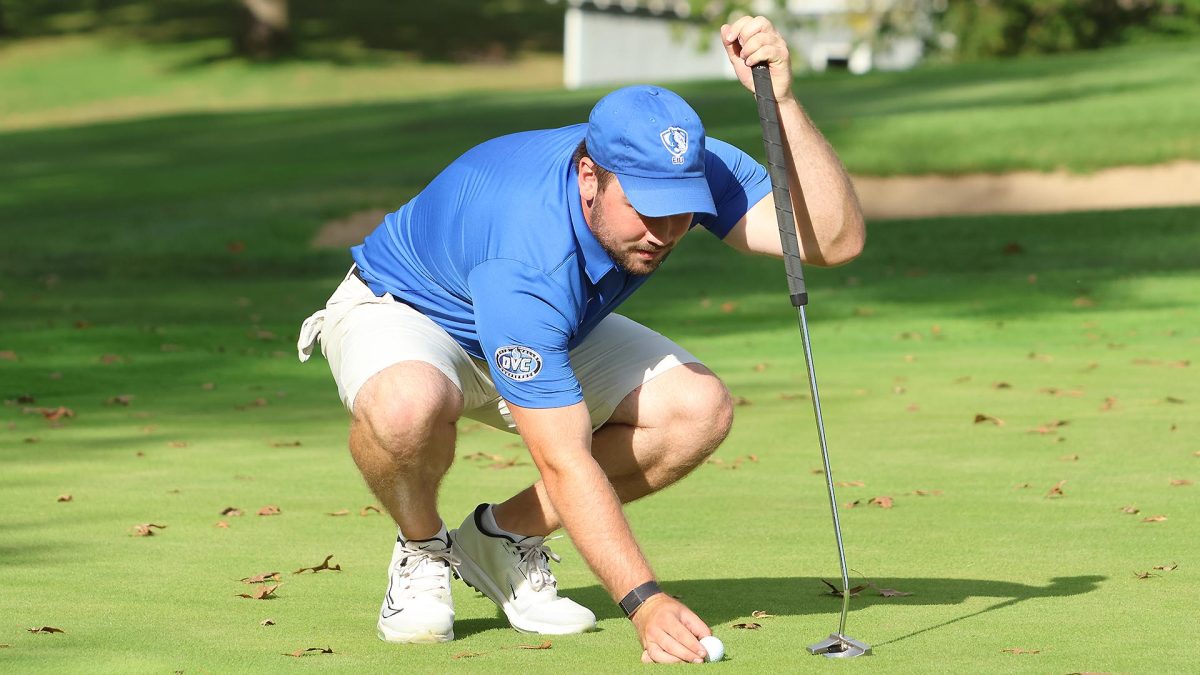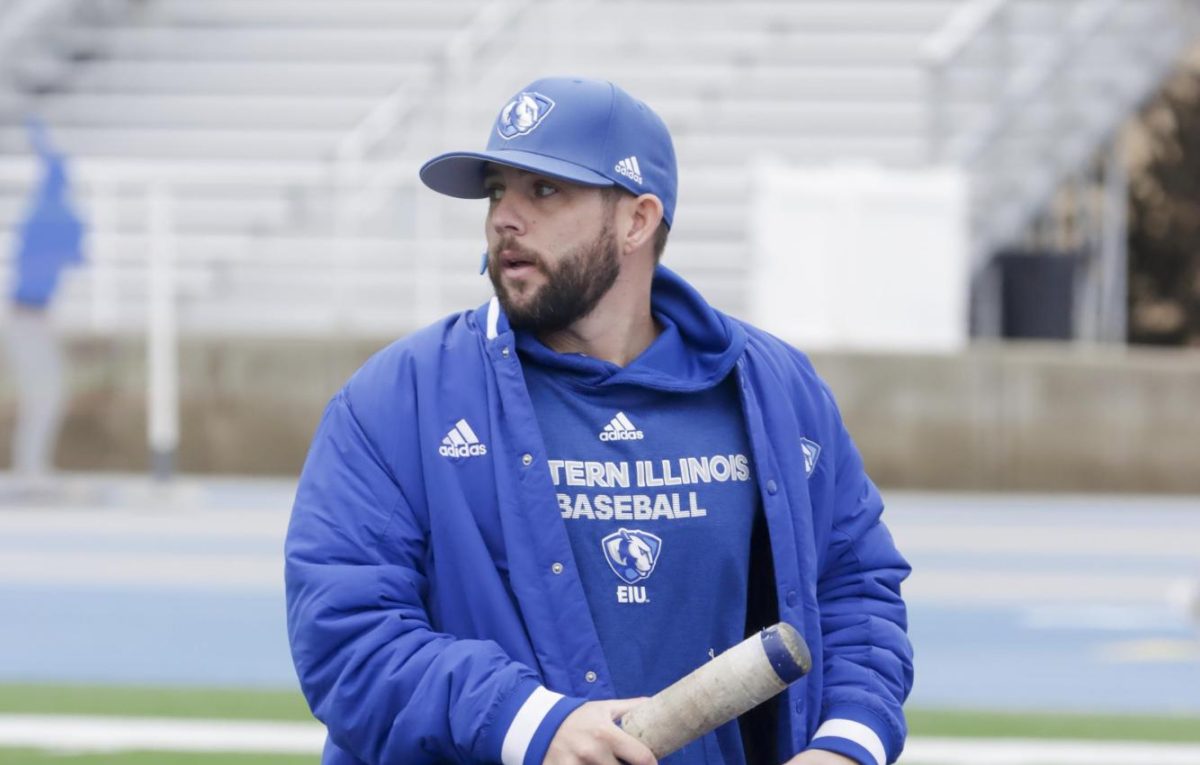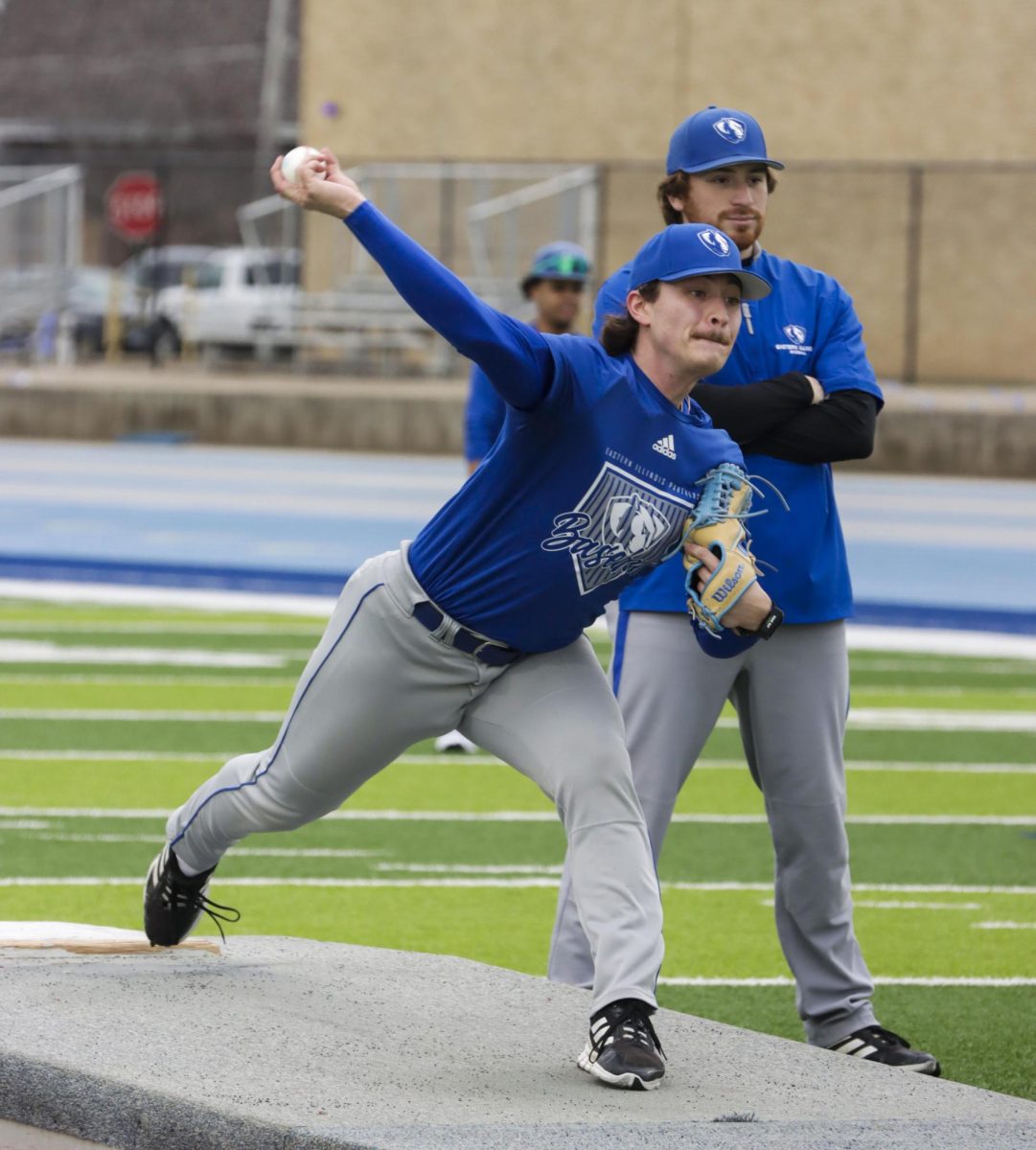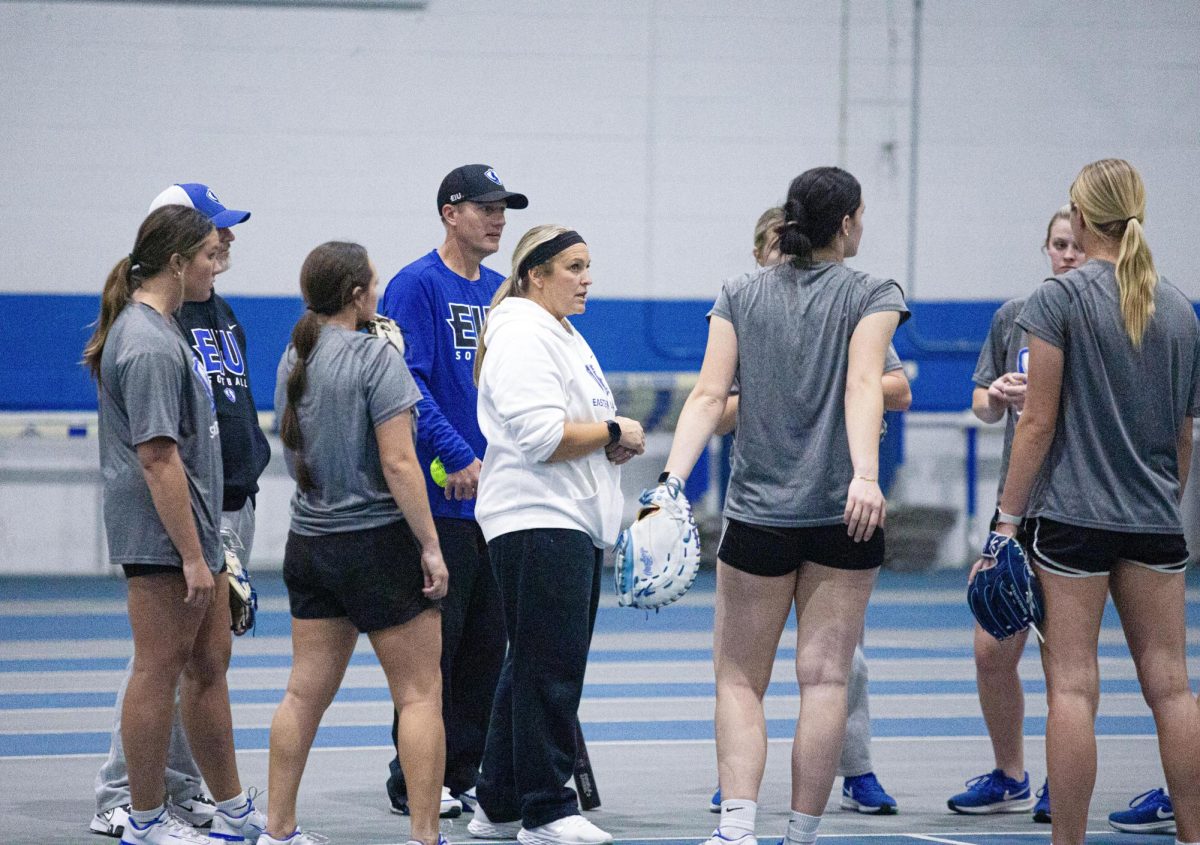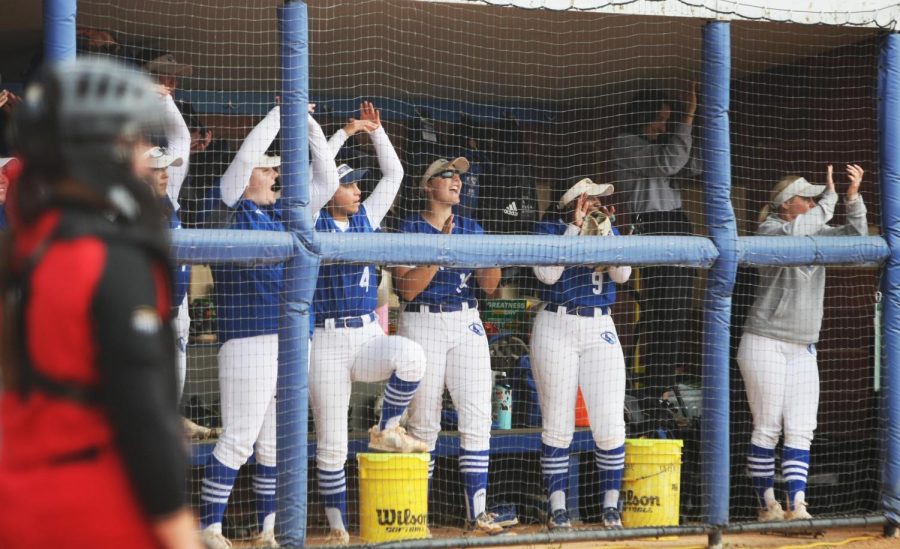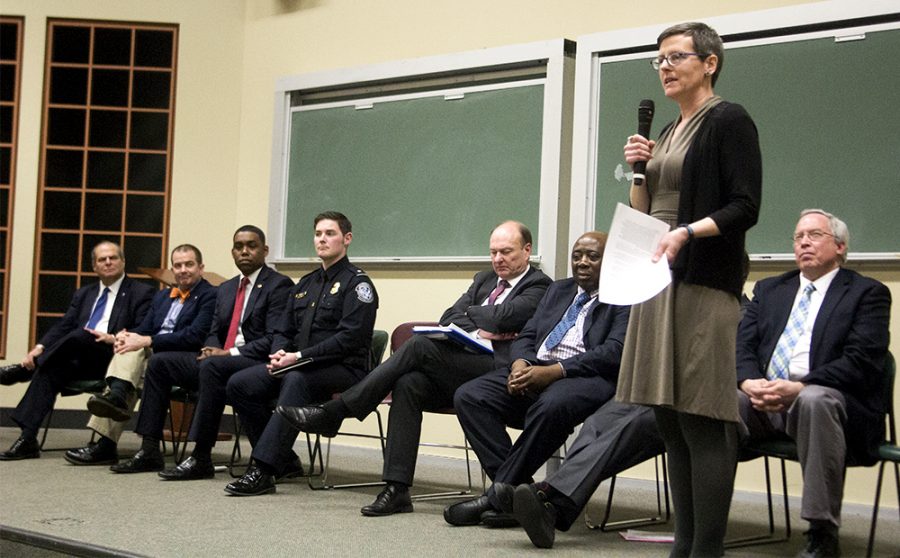Forum teaches about immigration policy, border security
Nayeli Vazquez | The Daily Eastern News
Sace Elder, chair of the history department, speaks to the audience during the Border Secruity Forum Monday afternoon at Buzzard Hall.
March 25, 2019
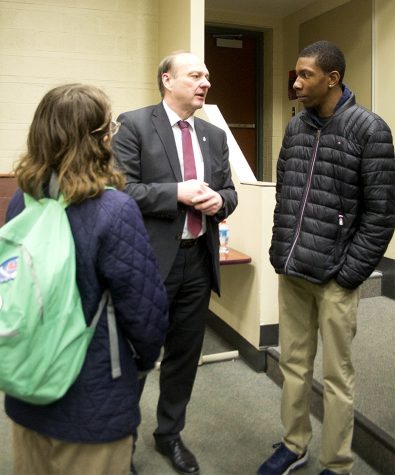
Hubertus Andrae (center), police commissioner of Munich Germany, talks with audience members after the Border Secruity Forum Monday afternoon at Buzzard Hall.
Several speakers offered their take on immigration policy and current debates Monday night during Eastern’s “Immigration Forum.”
Arthur Turner, deputy majority leader of the Illinois House of Representatives, Matthew Davies, deputy director of the U.S. Customs and Border Protection’s Chicago Office, and Hubertus Andrae, police commissioner of Munich, Germany presented their different perspectives on immigration.
Turner, a Chicago native, discussed the state’s perspective on immigration policy. Turner focused primarily on the Trust Act.
Turner said with the Trust Act, the power of law enforcement is weakened when it comes to carrying out federal immigration policies. This is to protect immigrants, he said.
“Trust Act, among other things, it will limit local law enforcement’s ability to participate in the implementation of federal immigration policies,” Turner said.
“The bill will prohibit schools, hospitals and other institutions from granting access to state and local law enforcement who are cooperating with federal agencies unless a proper warrant has been granted for probable cause of criminal activities is present. So, this was a bi-partisan law that provided individuals with protections that they otherwise will not have; immigrants can now interact with the police without being scared that they will be forced out of their homes.”
Turner also said House bill 2691 would be good for immigrant students.
“House bill 2691 would allow (immigrant) students to apply for the monetary award program (MAP Grant) … and it’s all in an effort to encourage all students to attend all of our universities,” he said.
An issue Turner said the country in general suffers from is poor communication, when it comes to immigration policy. This poor communication trickles negatively into higher education, he said.
“Part of the issues that we are having on the federal side and even in the state side when we are making legislation is just lines of communication are not always open and people do not always understand other communities, and that lack of understanding is often times faced in fear and not having hand-in-hand interaction. And college campuses are a great place for people to interact and learn about each other.”
Davies, who is also a Chicago native, talked about the federal government’s perspective on immigration policy.
Davies informed the audience on how the U.S. tracks immigrants who are already in the country illegally or are trying to get in illegally.
“We also have a large footprint overseas; we operate within 52 foreign countries with almost 1,000 officers assigned overseas trying to push the borders out in terms of border security making sure that we can effectively manage the risk as it’s entering the United States or before it enters the United States, whether it’s through our pre-clearance programs where we inspect travelers who are getting on planes before they come to United States,” he said.
Davies finished by highlighting the “primary mission” of the federal government’s job when it comes to immigration.
“When we talk about the immigration perspective, the one other thing that I have to highlight is the fact that our primary mission in the federal agency, especially when we are talking about the immigration context, is counter terrorism. That is the reason we were created in 2003 as Customs and Border Protections—we were created in the aftermath of September 11, 2001 to ensure that something like that will never happen again,” he said.
A panel of Eastern professors also responded to what Turner, Davies, and Andrae had to say.
Brysen Carr can be reached at 581-2812 or at bdcarr2@eiu.edu.


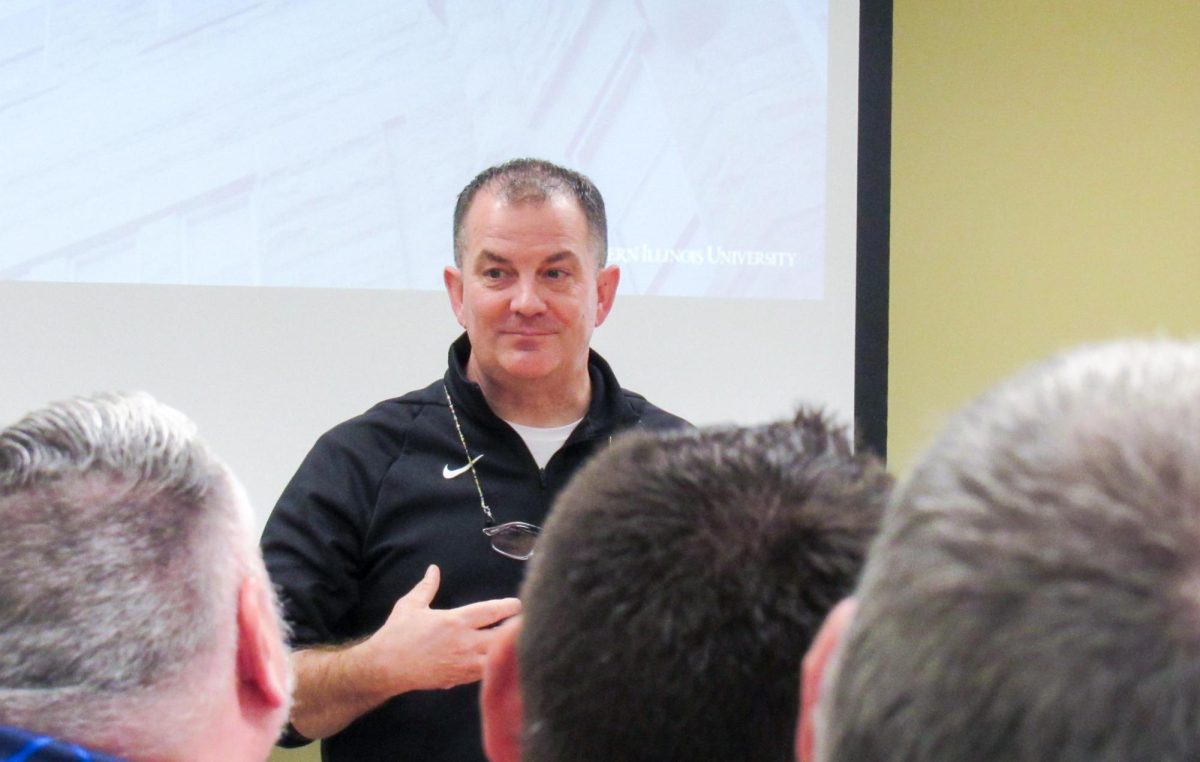
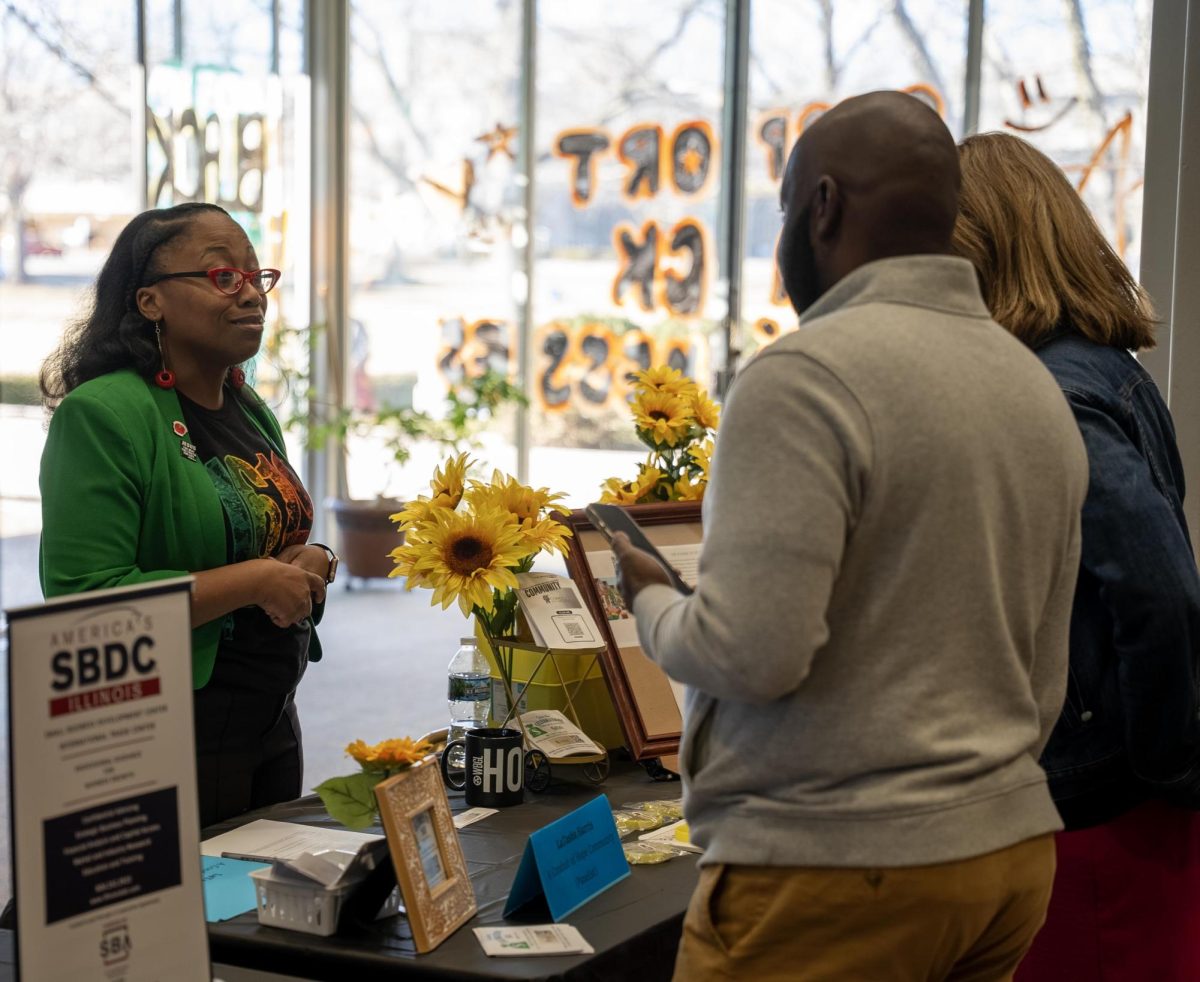

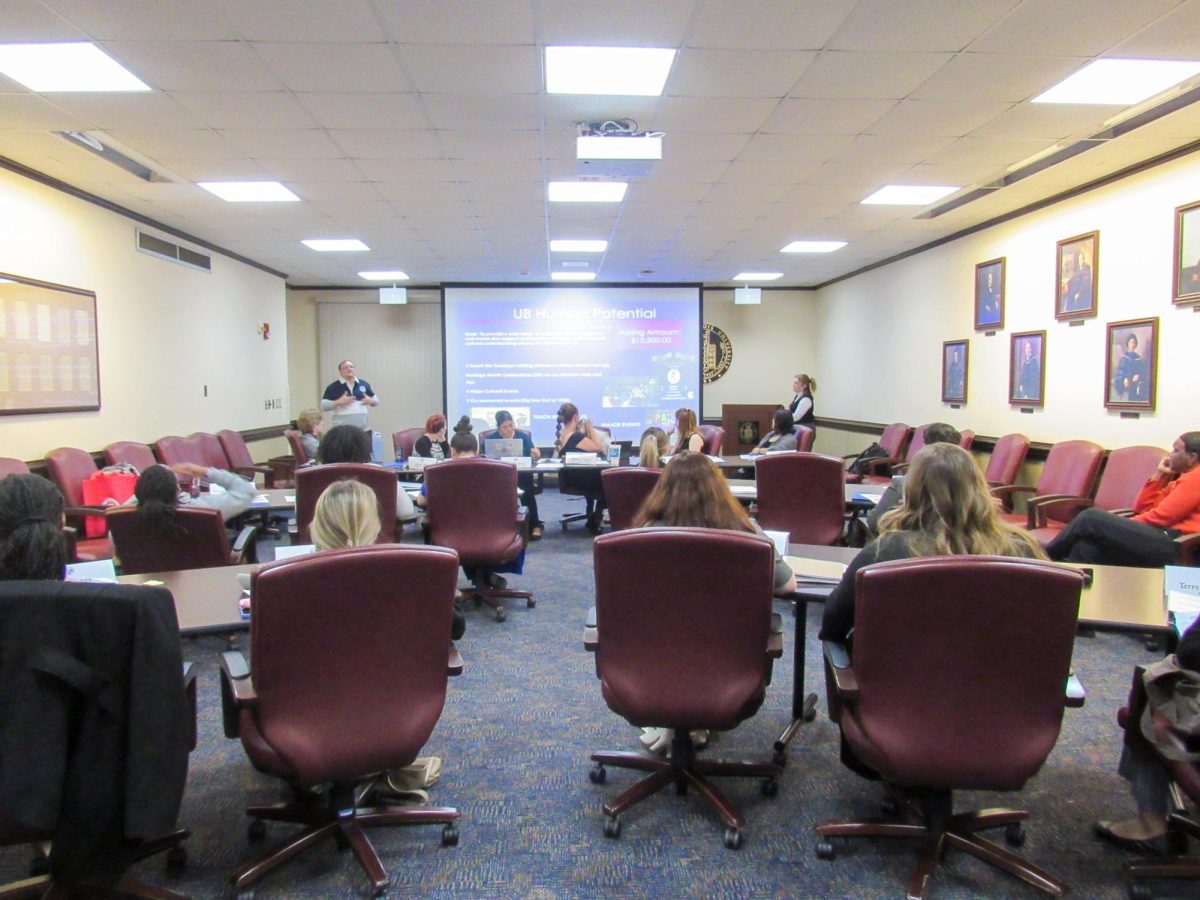
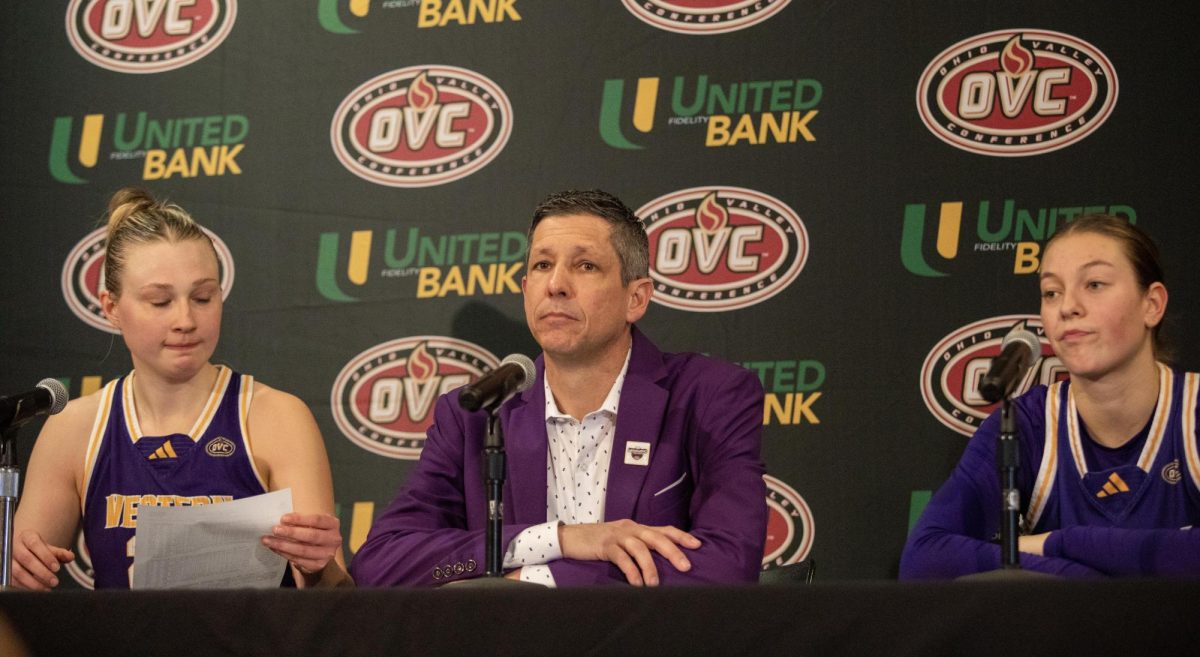
![[Thumbnail Edition] Senior, forward Macy McGlone finds an open teammate to pass the ball too during the game against the Tennessee State Tigers 69-49, in Groniger Arena on the Eastern Illinois University campus, Charleston Ill.](https://www.dailyeasternnews.com/wp-content/uploads/2025/03/WBB_02_O-1-e1741228987440-1200x692.jpg)
![E[Thumbnail Edition] Eastern Illinois softball freshman utility player Abbi Hatton deciding to throw the softball to home plate in a fielding drill during softball practice at the field house in Groniger arena on Tuesday Feb. 11.](https://www.dailyeasternnews.com/wp-content/uploads/2025/03/SB_03_O-e1741208880750-1-e1741209739187-1200x815.jpg)
![[Thumbnail Edition] Eastern senior guard Corey Sawyer Jr bringing the ball up past the half court line during the first half Eastern’s win against Little Rock 71-60 at Groniger Arena on Thursday.](https://www.dailyeasternnews.com/wp-content/uploads/2025/03/MBBLR_04_O-1-e1741139766107-1200x773.jpg)
